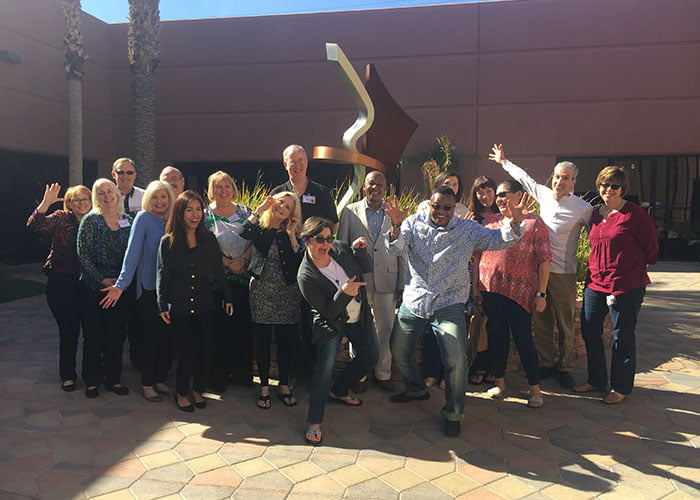I started work at Disability Rights Nebraska in February of 1998, coming from a very homogenous “all-white, all 30’s” workplace into one of a variety of ages, races, attitudes and abilities. That was just the start of the whole mental expansion process. Like many people without a visible physical disability or a diagnosis of some sort, I didn’t think I’d had any experience with disability. I forgot about my aunt, my cousins, the girl I rode the bus with growing up, the guy in my class that seemed to struggle more than everyone else. Sometimes I wish I could go back to not recognizing things as “disability”. But recognizing that was part of the process of becoming conscious of the fact that not everyone has a support system or a community. Not everyone has a voice, by default or by oppression, or sometimes because they’ve made that choice because it seems safer to them to remain quiet.
But here’s the thing: the people I work with are Advocates. Part of the root of “advocate” is “vocare”, meaning “to call”. They call people out. They encourage people who contact the office for assistance to speak on their own behalf. They also call out the obvious bullies and abusers, yes, but most often, they call out The Unconscious, people who just don’t know any better or make the effort to see any more clearly. And that is what we learn to do here: to be conscious. Of personal dignity, of ability, of individual rights.
Disability Rights Nebraska underwent an extensive Strategic Planning process a few years back using something called Appreciative Inquiry. Through that process, we learned to look for what was working, took a stab at envisioning things the way we’d like to see them in the future, with awareness but not fixation on, how they had been or currently are. In this, the 25th year of the Americans with Disabilities Act, may our vision expand to become more conscious of the value of humanity, of individuals, whether they work or don’t work, whether they speak for themselves or don’t “speak” at all.
It’s something I examine in my own life: what is it that makes me worthy of love, of respect, of consideration? It’s not that I hold down and job and do a half dozen other things on the side. It’s because I’m a human being, a tiny spark of Divinity riding around in a physical body, and my experience, regardless of what that is on any given day, is valuable.
So this is what I’d like to see, and I realize it’s a Utopian vision, but hey, we’ve all got to start somewhere. It’s a vision that has evolved as a result of the work we do here.
May we do our best to see each individual as just that, an Individual with dignity and value, with an experience unique to him or her-self and valuable to the whole of humanity’s body of wisdom. And if they don’t see it themselves, our job is to “call it out”, to advocate.
Guest Author:
Sharon Ohmberger has held various support-staff titles at Disability Rights Nebraska and is currently the Executive Assistant to the CEO of Disability Rights Nebraska. In her off hours she is an artist who works in clay.


Add your comment now using your favorite social account or Click Here To Login
